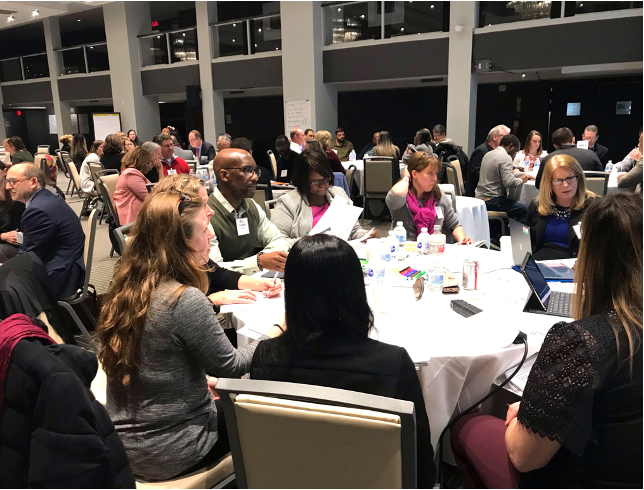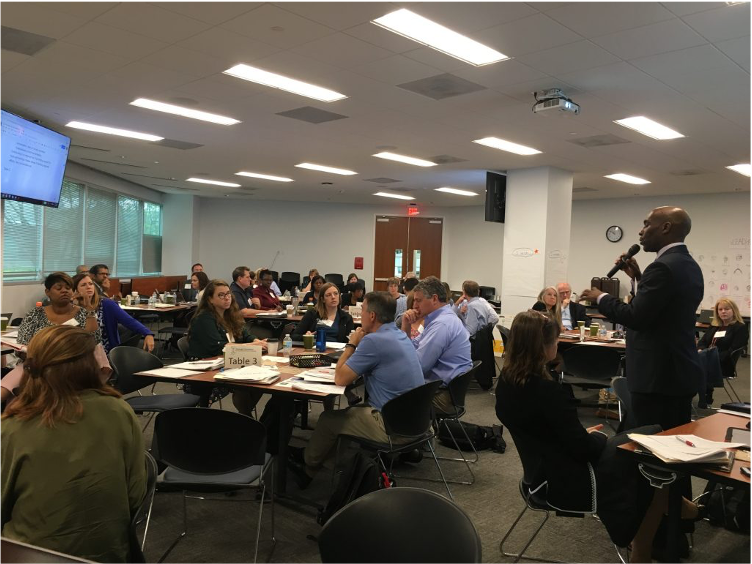Our Work
Improvement Teams

Several partnerships are using improvement approaches to enhance educational practices and policies to better support student learning. For instance, the Fairfax County Public Schools-George Mason University partnership and the alliance between Prince George’s County Public Schools and the University of Maryland, College Park are focused on revamping Title-1 School Improvement Planning to better serve students. Likewise, the Denver Public Schools-University of Denver and Portland Public Schools-Portland State Partnerships are focused on improving district-wide instructional practices that foster learning. In addition, an increasing number of iLEAD partnerships are demonstrating process and outcome improvements.
For example, the partnership between Chicago Public Schools and the University of Illinois, Chicago has produced over 130 current school and district leaders and exceeded district norms in improving school ratings in the district accountability system. Leaders from the New York City Bronx-Fordham University partnership and Oxford Public Schools-University of Mississippi partnership have also leveraged their collaborations to boost student attendance and performance in their respective sites. Further, the High Tech High Charter School Network and Graduate School of Education, as well as the Avondale Elementary School District-Arizona State University partnership, have increased teacher retention, reduced unfilled vacancies, and developed teacher leaders through their iLEAD work.
Improvement Science

The National Center extends the work of the Carnegie Foundation who helped pioneer the development of improvement methods, tools, resources, processes, and mindsets to increase educational opportunities and outcomes. The National Center promotes the use of educational improvement science by building the capacity of educators and leaders through workshops and trainings; fostering partnerships, networks, and collaborations focused on specific problems; and disseminating knowledge of what works, for whom, and under what conditions.
The most effective and efficient way to organize improvement efforts is through networked improvement communities (NICs), a colleagueship of expertise that builds on the hard work and creativity of the collective. NICS are intentionally designed social organizations, each with a distinct problem-solving focus. They maintain narratives that exemplify what they are about and why it is important to affiliate with them.
As a scientific learning community, NICs are focused on a well-specified common aim; guided by a deep understanding of the problem and a shared working theory to improve it; disciplined by the methods of improvement research to develop, test, and refine interventions; and organized to accelerate interventions into the field and to effectively integrate them into varied educational contexts.
